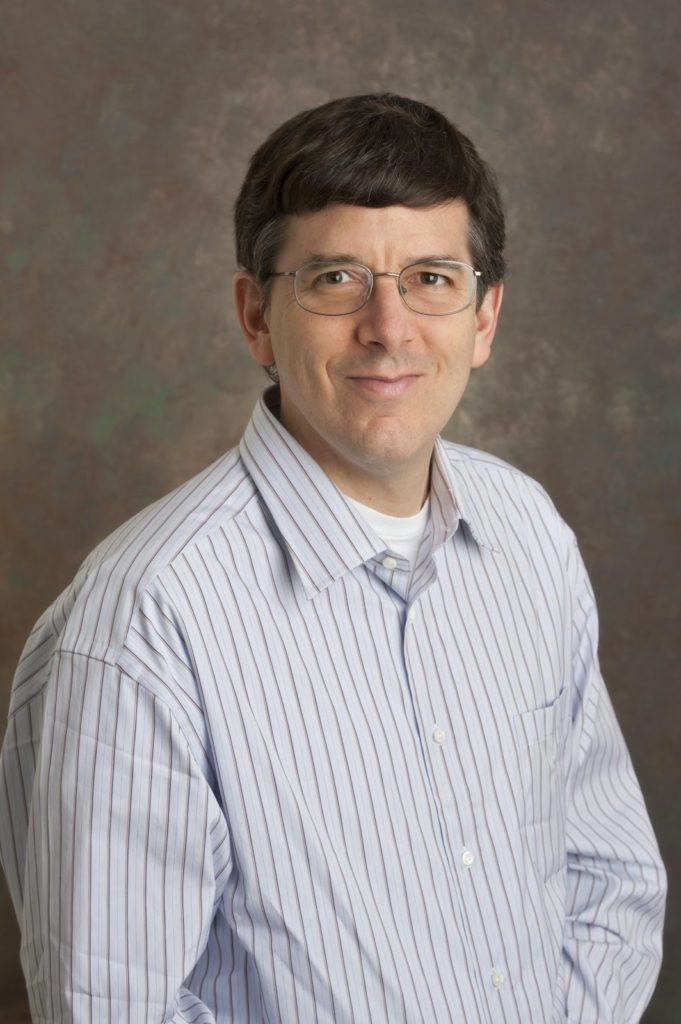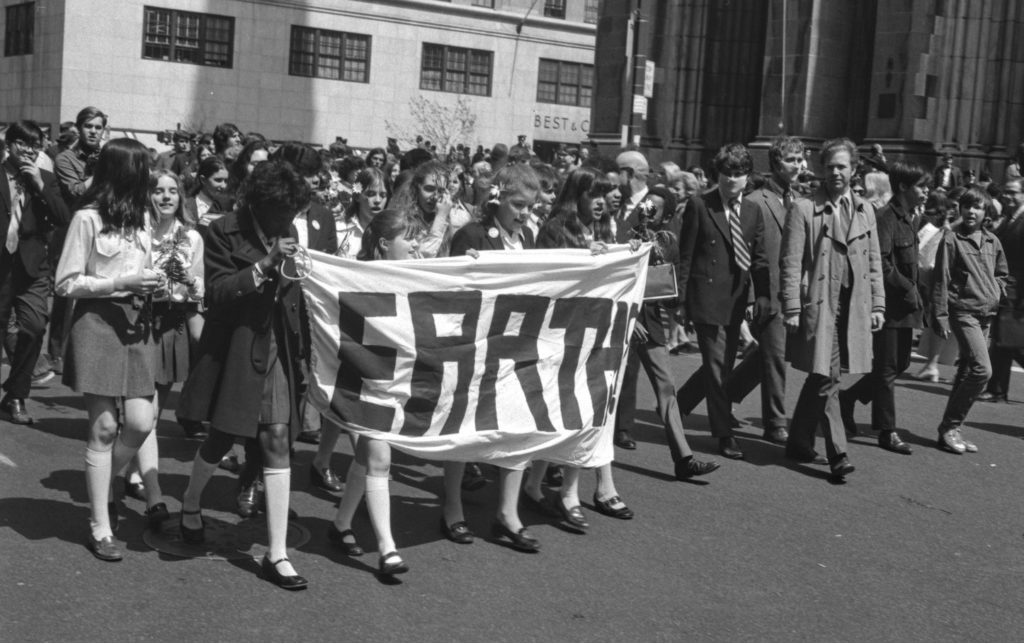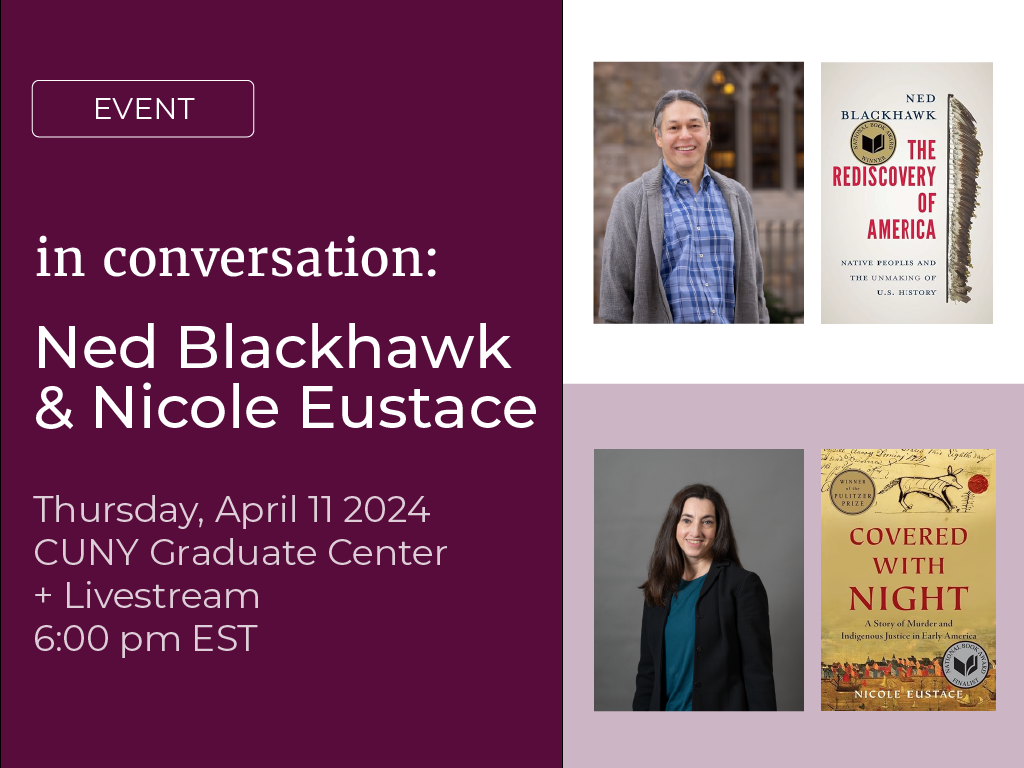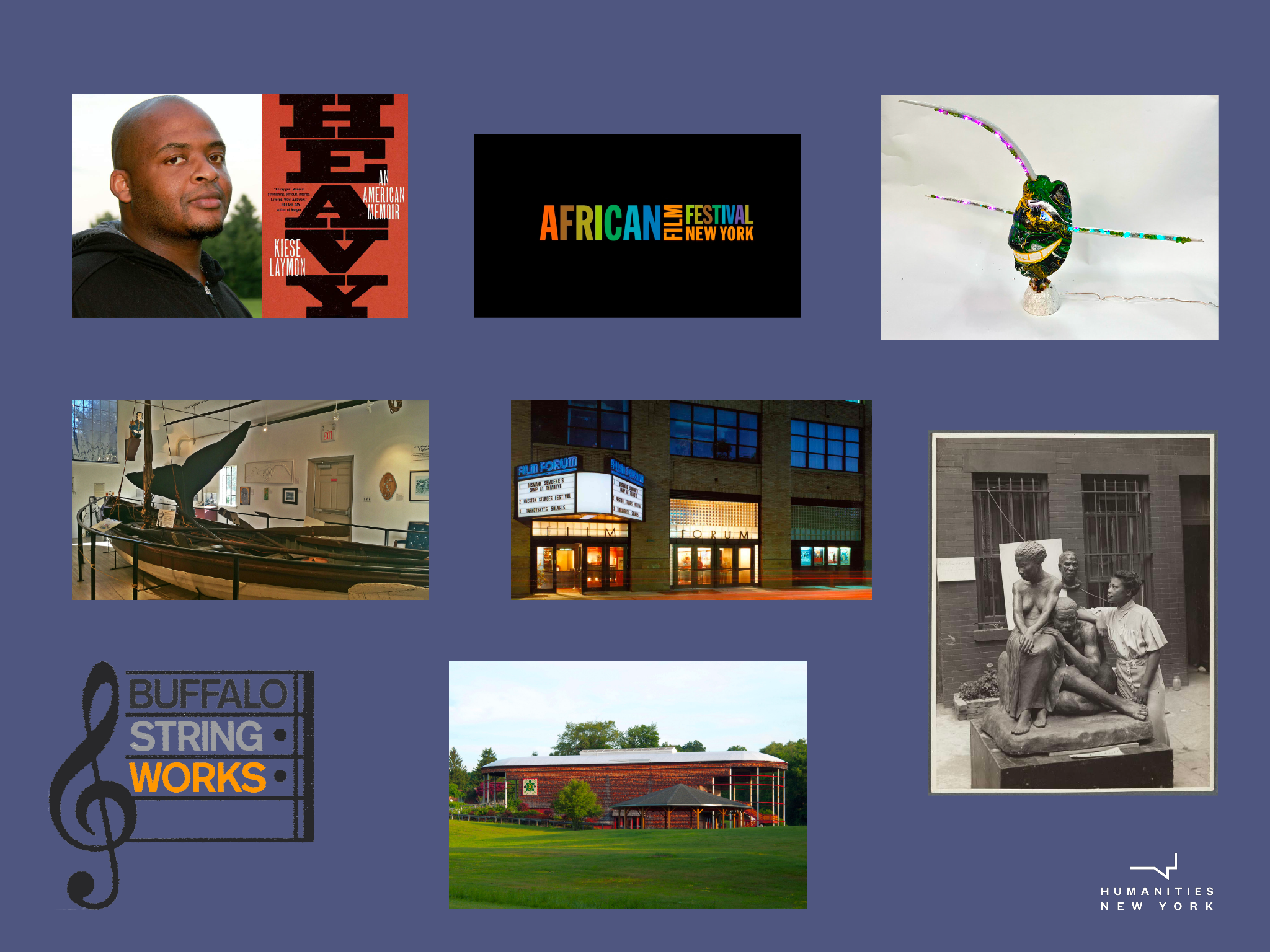Reflections on “Turning the Tide: Communicating Climate Change.”
In 2017, as part of the Buffalo Humanities Festival, HNY convened some of the most brilliant minds in New York to examine how the language and conversations around climate change have shaped our understanding of it, and why the divide between people is so vast. This year we revisited the conversation with one of the panelists, environmental historian Adam Rome, to reflect on where we were then and what the world looks like now.
This interview, by HNY’s Joe Murphy, is the first in a series of pieces with scholars and grantees exploring the question of how culture and science relate to one another in our public discourse and how that shapes the environmental movement today.
Above: Youth march down Madison Ave for 1970 Earth Day in New York City. Courtesy of the NYC Municipal Archive.
What has changed since 2017 in the climate “debate”?
The word “debate” kind of ticks me off, because there is no debate! The notion that we’re having a “debate about the science” is completely fictitious. A real debate would see a Republican conservative like Bob Inglis, the former congressman from South Carolina, in conversation with a Left progressive like Bernie Sanders, joined by a business-school professor whose views are somewhere in-between the two politicians. All would agree on the basic premise that climate change is real and that it’s a civilization-threatening problem. But they would disagree on how to tackle it, on the concrete steps needed to mitigate the problem. That’s a debate, and we haven’t had anything remotely like that.
The reason why is complicated. When I did that HNY panel on climate communication in 2017, I hadn’t yet read Andrew J. Hoffman’s 2015 book, How Culture Shapes the Climate Change Debate. Hoffman is a professor in the business school at University of Michigan who writes on environmental sustainability. His starting point is that you’ll never convince climate skeptics with more scientific data. He reviews a huge social-science literature about how people form their views and change their minds and argues that this is essentially a cultural and an ideological divide, which is what makes it so hard to find any kind of common ground.
We know that many climate skeptics are driven purely by economic self-interest. The most powerful economic force in history, the fossil-fuel industry, has no interest in seeing a real debate about this because it would endanger their profits and their very existence. There are other industries, too, beyond fossil fuels, that have a vested interest in maintaining business as usual. But there’s this even more important ideological debate that’s largely independent of pure economic interest — “more important” in the sense that so many more people share this ideology than directly work for an industry with a stake in the matter. There are a lot of people who think the “the free market” can do no wrong. They’re incredibly proud of the ways that the market has been a dynamic, constructive, liberating force.
But climate change — and many free-market economists will say this — is a huge market failure. The market has not prevented climate change. If your whole life has been devoted to the idea that the market is infallible, that it’s the greatest thing ever, then it’s truly disturbing to reckon with the reality of a profound market failure that could jeopardize all of civilization — not just wreck the economy, but destroy society and the planet as we know it. And free-market ideology goes hand in hand with other assumptions. A lot of people dislike government regulation; they don’t want people telling them what to do. Some of that’s human nature; I feel it too sometimes, even though I believe that the government can do a lot of good. The bottom line is, you’re not going to change someone’s mind about any of this by giving them some data about temperatures in Hawaii or glaciers in Greenland.
There’s a great phrase in Hoffman’s book: We have to separate the problem from the solution. If the way you discuss climate change implies that the only solution is massive government regulation, then anyone who doesn’t like government regulation will find a way to cast doubt on the problem itself. But you can open a dialogue with them if you open the door to say, look, we just have to agree on the nature of the problem, but as far as solutions are concerned, there might be more than one approach.
Is the country stuck in “problem mode,” unable to envision, or even articulate, solutions?
It is a “vision problem.” And in a way, that, too, is cultural. Environmentalists are terrible at offering positive, can-do visions of the future. And it’s not just environmentalists. There are a lot of people who take climate change very seriously but try to scare people into taking action. Their strategy boils down to: “This is what we’ll lose if we don’t do something! This is all the bad that will come if we don’t do something!” Sometimes that is the only way to think about a problem. But it’s an inherently limiting way of thinking about it. There are a lot of other people who, in order to be motivated, must feel like they’re building something with a team. For them, the question should be: “How will the world be better if we address climate change?”And that takes a positive vision. To be sure, in the short run it might not be better; we’ve already baked in a lot of really damaging changes that we’ll have to deal with over the next decades. But if all you ever talk about is staving off catastrophe — which is what a lot of environmentalists have fallen into — it’s really hard to convince people whose temperament is more optimistic, who like to believe that there will be progress.
Do you see an overlap between the climate and pandemic contexts? Are the same values clashing now in the debate over Covid-19, the lockdown, and mask-wearing?
The answer is yes, but I want to qualify that, because I see a few counter-trends.
The pandemic seems like such an easy problem compared to climate change. Yet the cultural beliefs and political ideologies that have long held up climate action are now making it harder to contain the epidemic, too. There are several themes to both the pandemic and the climate crisis. There’s radical individualism, dislike of government regulation and dearly-held notions of personal liberty. There’s the free-market ideology of putting the economy above everything else. There’s the very human reluctance to sacrifice in the near term for some future benefit, and the difficulty of acknowledging issues of equity, of who is going to bear a social burden. There’s also distrust of expertise, or really, a kind of cynicism that prompts people to ask about others’ motives rather than actually engage with their ideas. Both sides exhibit this kind of cynicism. It’s not happening all at once, but I do see encouraging signs, on both sides of the partisan divide, that people are finding common ground on the need for action. That’s something which I just don’t see with climate change.
What, in your view, has contributed most to the collapse of trust and the spread of cynicism? Do you think the pandemic will disrupt current trends?
Some of the causes are fairly straightforward, though hardly anyone ever talks about them. When I was growing up, television had something called the “fairness doctrine.” Because the airwaves were owned by the public, a private company’s right to use them was subject to a public assessment that it was indeed in the public good. That assessment was enforced by a government agency. They had a rule that, if you talked about anything controversial, you had to give time to both sides. During the 1980s, the fairness doctrine was abolished as part of a broader push for deregulation. On the one hand, we have a zillion more kinds of media than we had when I was growing up. There are so many more places where you can get information. But none of them are bound to pay any attention to views other than those they want to promote. Giving equal time to opposing views is not an economically sound model compared to the alternative.
The shift started with television, but obviously now we’re dealing with the entire media landscape, including the big social media conglomerates. These companies thrive by telling you again and again what you already believe and gives you more evidence as to why your view is right. Modern media doesn’t encourage thought or reflection, it encourages certainty. If we’re honest, we have to admit that it takes a conscious effort to hear voices that are radically different from our own, to circumvent all the algorithms that social media sites use to know how we think. That’s one huge problem in itself that we don’t talk about very much, though there’s a lot of interesting social science research on it: we have very powerful institutions now that benefit financially from keeping us in partisan silos. It would take a conscious effort not just by us as individuals, but by society as a whole, to begin to break that down.
When I first read about the fairness doctrine, I thought this is another great example of why history matters. If all you know is the media today, it doesn’t seem weird that Facebook, Google and Twitter are the way they are. That’s just the way they are. But if you know the history, you know that they don’t have to be that way, that there’s nothing inherent about any of this. It’s not the way people thought that the media should be even as recently as thirty, forty years ago. History is incredibly helpful, not only for understanding how we’ve gotten into the bind we’re in, but also for reminding us that the current state of things is not etched in stone. It’s the result of choices and unintended consequences that involved real people rather than abstract forces.
How might ordinary people contribute to a restoration of trust? What kinds of conversations would move people closer to common ground? Are there any lessons from the history of the environmental movement?
This idea of history as providing alternatives is really valuable when it comes to trust. We have to think like the opposite of Facebook if we want to create a better society and get past these partisan divides. More and more people will have to say, “You know, distrust isn’t really profitable for me.” And I don’t just mean profitable in dollars and cents. I mean that it doesn’t advance our sense of the Good, of individual or collective happiness. People will have to say, “You know, it’s actually in my interest to find ways to overcome this distrust.”
You have to start by getting into a problem solving mindset rather than a click-and-momentarily-feel-better mindset. If you really want to solve problems, you have to think about how to actually reach people with whom you disagree. Where might you possibly find common ground? That requires thinking about how they view the world. You can’t just preach to them, “This is what I think. This is what I value.” They don’t necessarily care about that. Instead, you have to say something like, “OK, I know you really care about this and I’m sensitive to that. So I’m trying to find a way that we can talk about this without violating that assumption of yours.” Maybe that’s impossible. But it’s certainly impossible if you don’t even make the effort to understand why people think what they do.
The worst case of this, in the climate discourse, is the idea that science by itself can solve these problems. Science has become a bludgeon that one side uses against the other. But all science says is that there’s a really serious problem. It doesn’t set up a dialogue about the solutions. If all you do is emphasize the scientific data, people who disagree with you on how to approach the problem will think you’re chastising them. All they hear is, “You arrogant so-and-so!” And they’ll react defensively, saying, “I don’t want you to tell me I’m stupid because I don’t get the science. I do get the science, I just happen to think there’s a different way of solving the problem than you do.” The liberal side of the climate discourse really has to figure this out. Why has it been so hard for liberals to talk about climate with conservatives, or with people who don’t really care about politics at all, who just care about business?
I think empathy is a key part of it. You can’t have trust without empathy. You have to be able to enter into other people’s roles. And that’s the bread and butter of the humanities. The humanities help you understand how people quite different from yourself look at the world. That’s a very valuable asset if you want to solve problems, if you want to bring people together, because it brings the issue down from the abstract level of ideology to, well, the human level. Hoffman’s book made me realize that. Sometimes you have to say to a person, “Hey, I know that you’re against this solution, and that may make it harder for you to admit there’s a problem. But let’s forget the solution for the moment; I think there are actually many different solutions, and we can have an interesting discussion about that. But can we just talk for a moment about the problem?”
I’m not sure what that would look like in practice. But the point is, people will just deny the problem if they think that your solution is something they’ll hate. Building trust means hinting to your interlocutors that you’re open-minded about what approach to take, even if you have very strongly held ideas about what’s probably best. If you’re worried that the other side will deem your solution unacceptable, you’ve got to defuse that if you want to have any kind of conversation.
What lessons do you draw from the young Earth Day organizers? What do you tell your students about them?
One of the things I like about being a professor is that my students teach me stuff all the time, especially on climate. I know a lot about how we arrived at the present. But my students have much more to say than I do about the next steps, because they’re thinking more imaginatively about the future. Young people don’t have decades of opinions holding them back from new thinking. They feel like there’s a lot at stake, that their whole lives are ahead of them, and they’re a reminder that we all need to step back and say, “What do we really care about? What can we do to make things better — not only to avoid bad outcomes, but actually make things better?” There are many answers to these questions, not just one.
When I read your chapters on the young Earth Day organizers almost a year later, I recognized some of the dynamic Greta Thunberg is driving at, this attempt to wrest control of the future and with it, the terms of debate in the present.
I assigned Thunberg’s little collection of speeches to my students. It really helped me think differently about the climate movement. Thunberg talks about science all the time, but her real message isn’t scientific. It’s about urgency. It’s about her phrase “Your house is on fire.” It’s a reminder that the expertise we really need now is from people who understand psychology or economics or social movements. It’s not science. The most useful writing on climate talks about psychology or sociology or political science or economics. Once you get past the science, there are so many more important, interesting, essential questions that we would have to answer if we really want to change society, the economy, our energy system.
Learn more about Earth Day in our previous conversation with Adam Rome.
Keep up with HNY —get the newsletter!

Adam Rome is professor of environment and sustainability at the University at Buffalo. A leading expert on the history of environmental movements, he is the author of the prizewinning The Bulldozer in the Countryside: Suburban Sprawl and the Rise of American Environmentalism (2001) and The Genius of Earth Day: How a 1970 Teach-In Unexpectedly Made the First Green Generation (2013). He also is co-editor of Green Capitalism? Business and the Environment in the Twentieth Century (2017). From 2002 to 2005, he edited the journal Environmental History.



